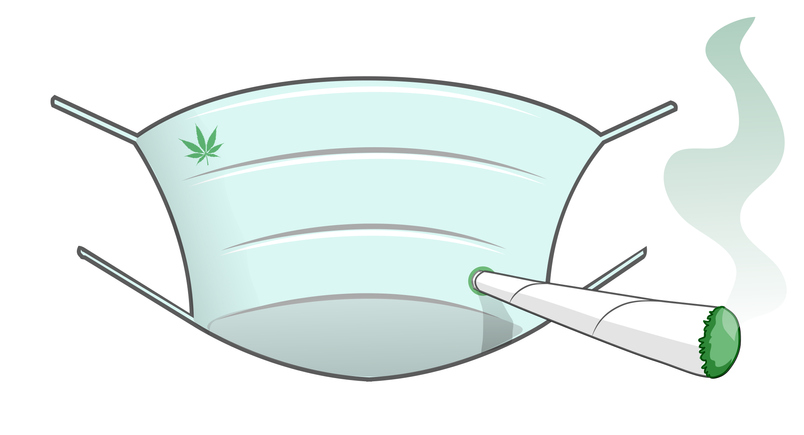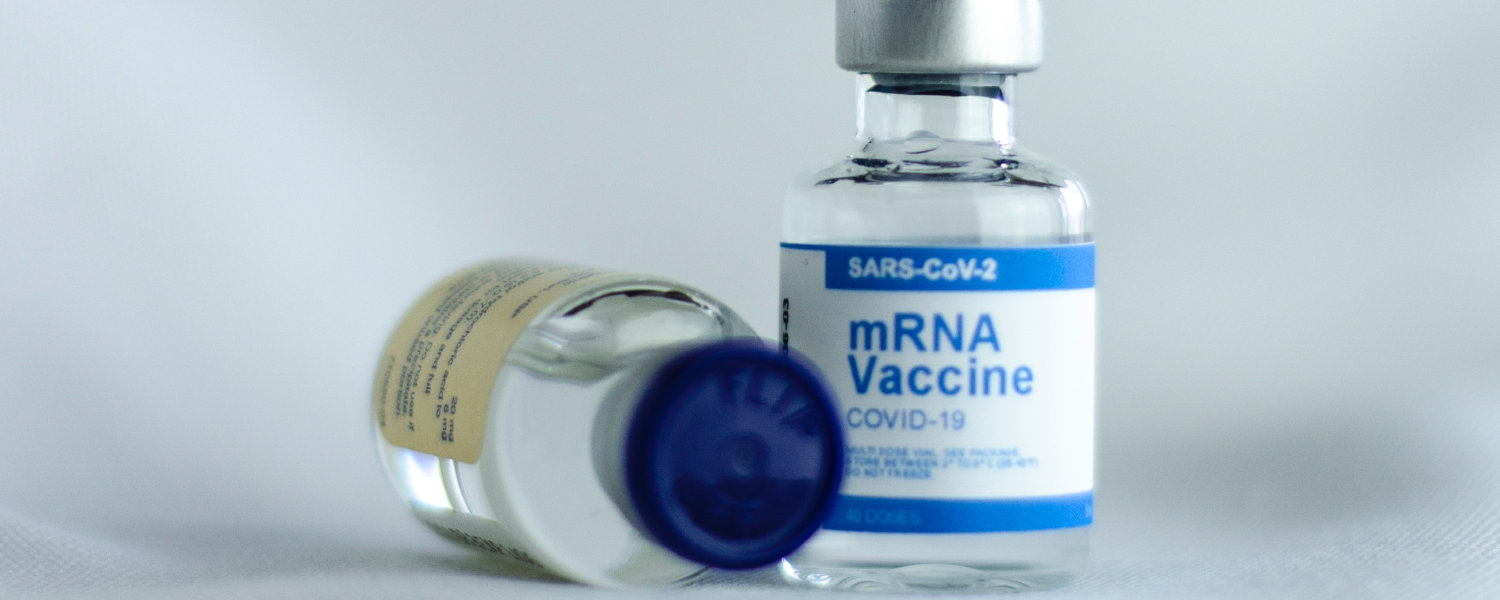The internet can be a powerful tool and an unrivaled source of information. Unfortunately, though, it can just as readily be used as a source of misinformation. This is especially true in our contemporary post-truth age. But it's difficult to trust what you read on the internet, for obvious reasons. In recent months, the world has been struggling with the most deadly pandemic in the past 100 years. As of this writing, COVID-19 has killed hundreds of thousands of Americans and millions worldwide.
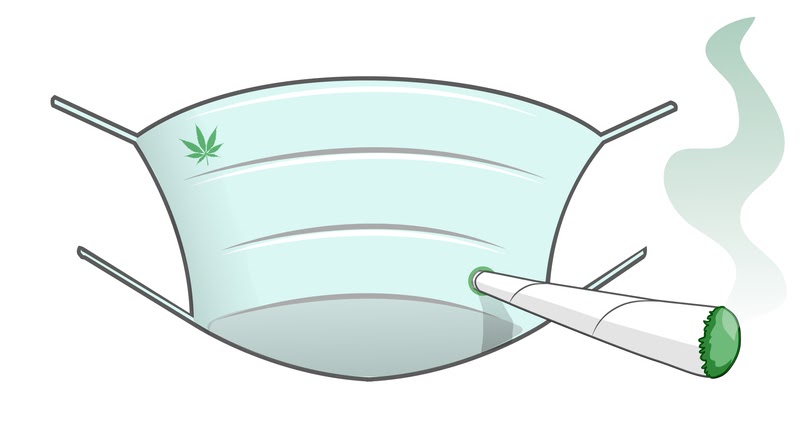
Yet, what started as a tongue-in-cheek meme is now making the rounds as a serious claim. That is, the idea that smoking weed kills coronavirus. Chances are, you have seen this claim being thrown around on the internet, but is there any truth to it? It would be nice to think that weed smokers have a little extra benefit in preventing COVID-19, but is this benefit real or imagined? That is what we'll be looking to answer in this article, considering the current amount of information on this topic needs to be increased. It's hard to tell if you can take these claims seriously or not at first glance. So, we've looked into it more closely for our readers.
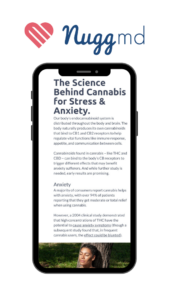
Find natural, lasting relief with our comprehensive (and completely free) patient’s guide to medical cannabis for stress and anxiety.
Does Weed Kill Coronavirus?
At this point, it is almost impossible to dispute the medical benefits associated with cannabis. Medical research is more or less finding that cannabis is, in fact, capable of offering several medicinal properties to its users. Whether it be for seizures, pain relief, cancer treatments, anxiety, or PTSD, cannabis is finally being recognized for its potential as medicine. Given the context, it's not entirely out of the ordinary to imagine cannabis might also help treat symptoms of COVID-19. You may have heard that smoking weed may help prevent infections in the lungs or that THC could help defend against the most severe reactions to the virus.
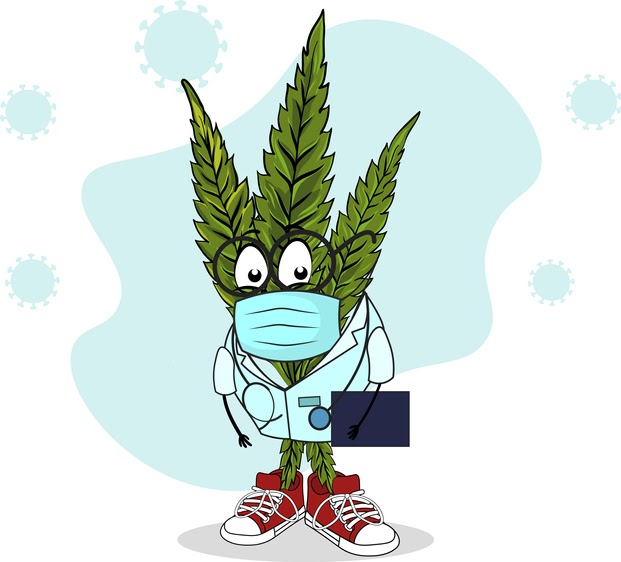
Yet, are these just mere internet rumors, or is there some truth to this claim? As you would expect, we first went on the hunt for any credible and well-founded claims. This assertion requires a few scientific studies before people can take it seriously. What we found were dozens of articles, all with vague theories and loose speculations. Many said things like, "may become a useful and safe addition to the treatment of COVID-19 as an adjunct therapy." Many articles noted that CBD has anti-inflammatory properties and the potential for pain and anxiety relief.
One article that frequently was mentioned is a study from 2022 done on COVID-19 cell lines using CBDa and CBGa. The researchers found that these two cannabinoids, CBDa and CBGa, had the ability to block entry of COVID-19 but not kill the virus. This is why many speculate that cannabis could treat the symptoms or cure COVID-19. However, the study used cell lines and was not tested in humans, plus the cannabinoids were in their acid forms and only involved CBDa and CBGa (van Breeman, et al., 2022).
There is no scientific evidence currently showing that weed can kill COVID-19. Conclusive and peer-reviewed research is still necessary to make any positive conclusions about weed and coronavirus.
What Does the WHO Have to Say About It?
Surely, if cannabis had some empirical link to coronavirus treatments, institutions like the WHO or the CDC would make a statement on it, wouldn't they? Yes, they would. However, according to their website, the organization "does not recommend self-medication with any medicines, including antibiotics, as a prevention or cure for COVID-19.”
This means that, unsurprisingly, WHO has made no official statement regarding cannabis products and their use as a treatment for COVID-19.

Should You Be Using Weed to Prevent or Cure Covid-19?
At the end of the day, there's still a whole lot we need to learn about COVID-19. And this includes if cannabis can be used, in any way, as a treatment for the virus. We didn't write this article to offer you any medical advice. Instead, we wanted to investigate the information circling the internet regarding this subject. It's not up to us whether or not some medical treatment is right for you, especially if we're talking about COVID-19.
What we can do, though, is offer you a word of caution when making any serious medical decisions based on dubious information found on the internet. There's too much disinformation out there to trust your health with an unsubstantiated rumor. While more clinical research is needed regarding CBDa and CBGa for COVID-19, current research supports the relatively safe use of both compounds in humans. Individuals could choose to add these compounds to their wellness routine without serious adverse effects. However, they have not been proven to treat or cure COVID-19.
But cannabis-related COVID-19 claims are not the only ones that are circulating the internet. As the virus has spread throughout every inch of the globe, so too has misinformation, false claims, and outright lies. In fact, the WHO even has its own “Mythbusters” page on its website dedicated to tracking the most prominent false coronavirus rumors. Some of the most notable of these are:
- Alcohol can also prevent coronavirus,
- Adding pepper to your food can act as a prevention or cure,
- Vitamin and mineral supplements can cure COVID-19,
- COVID-19 is caused and spread by the installation of 5g mobile networks,
- Drinking methanol, ethanol, or bleach can act as a prevention or cure.
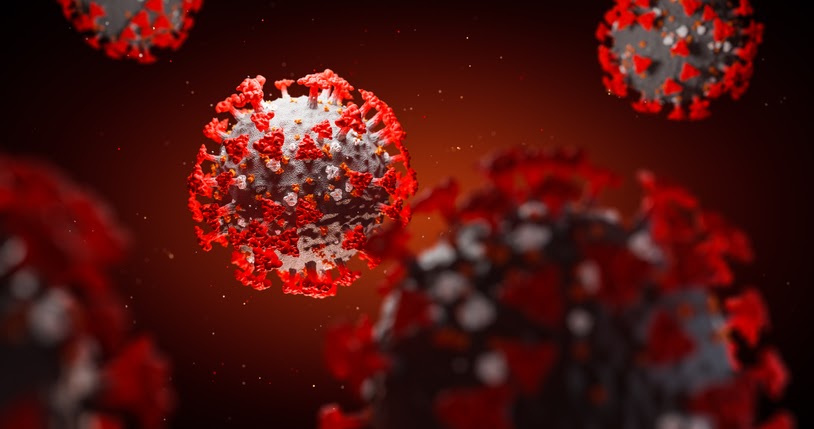
Unfortunately, as of the date this article was updated, over 775 million people across the globe have lost their lives to the virus. The COVID-19 virus is a deadly pathogen still spreading throughout communities worldwide, with over half a million cases reported weekly. Given the uncertainty of our times, it's understandable why you may be looking optimistically at medical cannabis. But this doesn't mean that cannabis is actually effective at treating or preventing COVID-19. Indeed, nothing in the scientific literature has produced anything that we can confidently point to as definitively showing a link between cannabis and coronavirus. Therefore, you should remain vigilant and, quite frankly, skeptical of any health claims you see on the internet concerning COVID-19 and marijuana.
The information in this article and any included images or charts are for educational purposes only. This information is neither a substitute for, nor does it replace, professional legal advice or medical advice, diagnosis, or treatment. If you have any concerns or questions about laws, regulations, or your health, you should always consult with an attorney, physician or other licensed professional.

